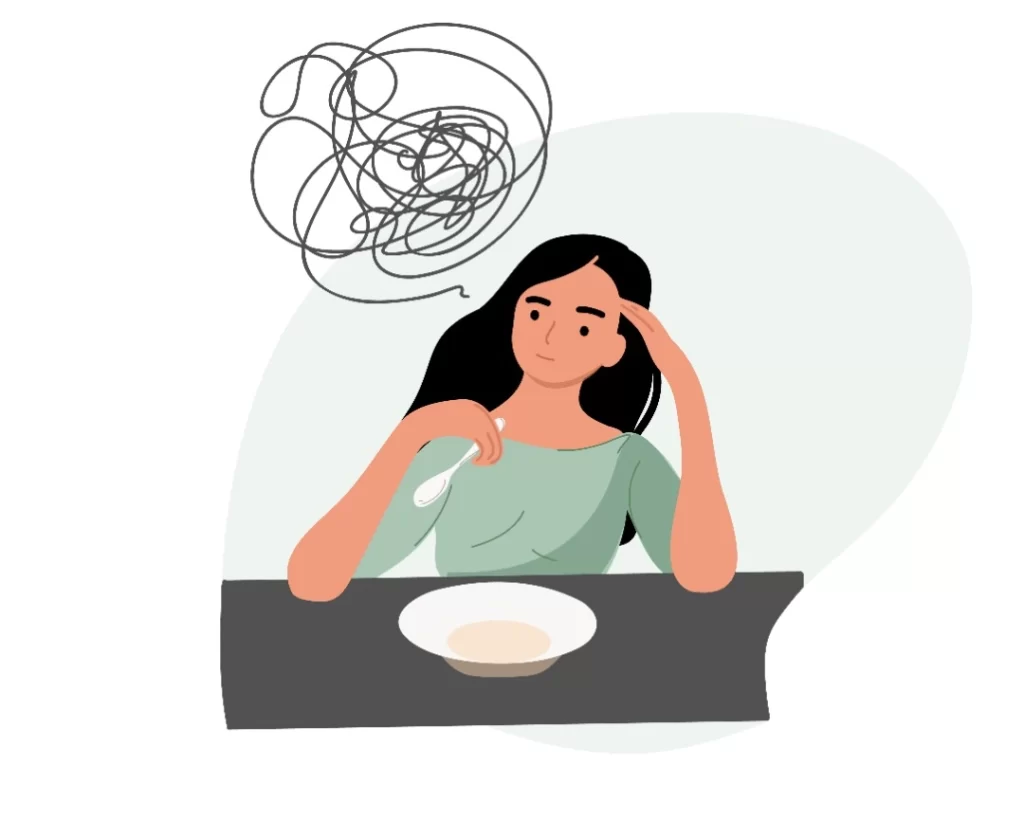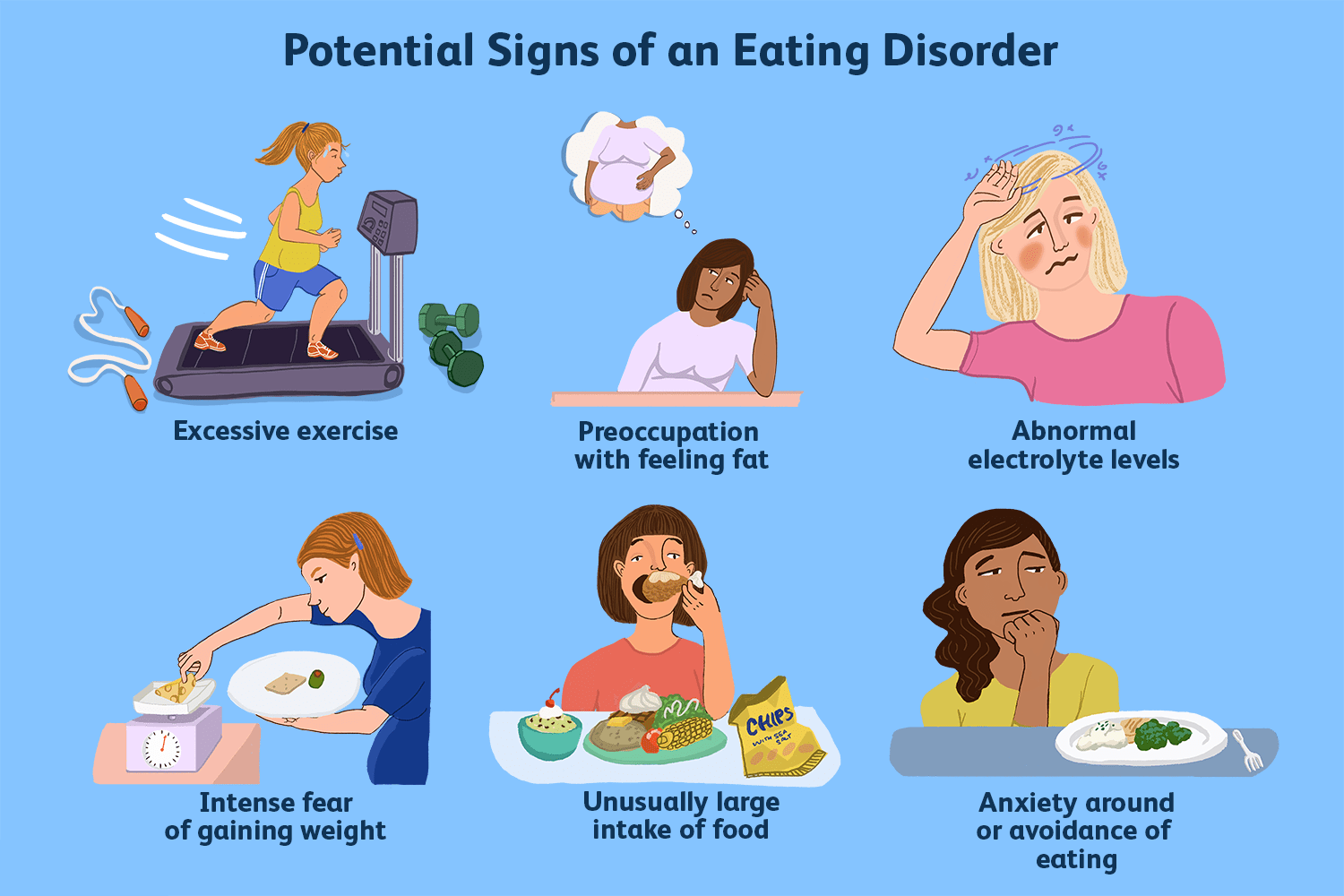Eating Disorders
Eating Disorders

Eating disorders are serious mental health conditions characterized by an unhealthy relationship with food, body image, and weight. They involve extreme emotions, attitudes, and behaviors surrounding eating and often result in severe physical and psychological consequences. The most common types of eating disorders include anorexia nervosa, bulimia nervosa, and binge-eating disorder.
Anorexia Nervosa: People with anorexia nervosa have an intense fear of gaining weight and a distorted body image. They severely restrict their food intake, leading to significant weight loss and malnutrition. Individuals with anorexia may engage in excessive exercise, exhibit obsessive behaviors around food, and have a preoccupation with body shape and weight.
Bulimia Nervosa: Bulimia nervosa is characterized by recurrent episodes of binge eating, followed by compensatory behaviors to avoid weight gain, such as self-induced vomiting, excessive exercise, or the misuse of laxatives or diuretics. Individuals with bulimia often experience a sense of lack of control during binge episodes and may feel guilt, shame, and low self-esteem afterward.
Binge-Eating Disorder: Binge-eating disorder involves recurrent episodes of consuming large amounts of food in a short period, accompanied by a feeling of loss of control. Unlike bulimia, there is no compensatory behavior, such as purging. People with binge-eating disorder often experience distress and guilt about their eating patterns and may have associated health problems, including obesity.
Eating disorders can have serious physical and psychological consequences, including nutrient deficiencies, electrolyte imbalances, gastrointestinal problems, heart problems, depression, anxiety, and social isolation. They often coexist with other mental health conditions such as depression, anxiety disorders, or substance abuse.
Treatment for eating disorders typically involves a multidisciplinary approach, including medical, nutritional, and psychological interventions. It may include therapy (such as cognitive-behavioral therapy or dialectical behavior therapy), nutritional counseling, medication (in some cases), and support groups. The goal of treatment is to address the underlying psychological factors contributing to the eating disorder, promote a healthier relationship with food and body image, and improve overall well-being.
Early intervention and seeking professional help are crucial in the treatment of eating disorders. If you or someone you know is struggling with an eating disorder, it is important to reach out to a healthcare professional or a specialized eating disorder treatment center for an accurate diagnosis and appropriate care.

